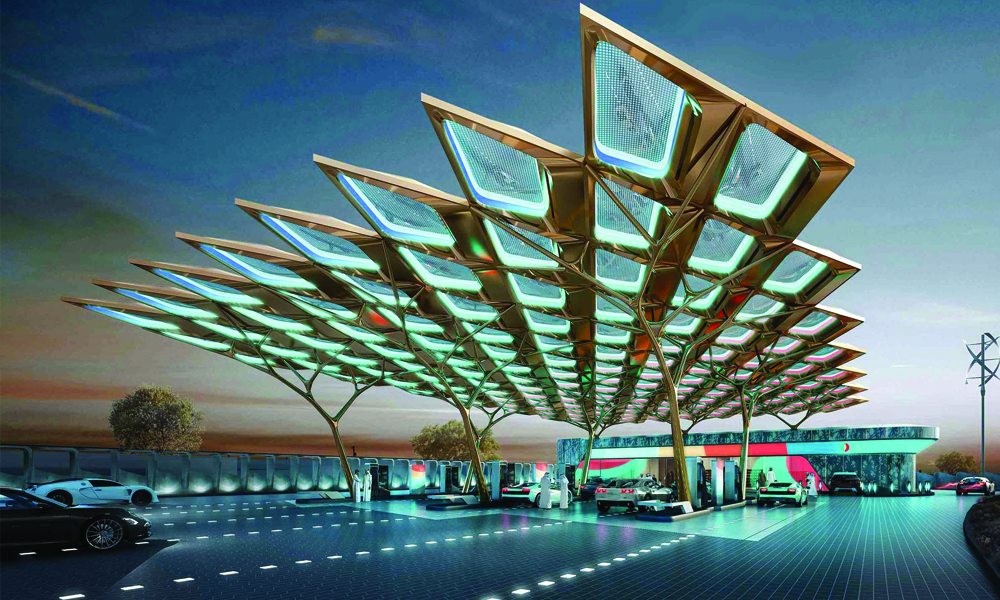The UAE-based ENOC Group has announced that the construction of its Ghaf-tree inspired ‘Service Station of the Future’, located at the Expo 2020 Dubai site, has reached the 40% completion mark.
Work on the region’s first LEED Gold certified service station began in August 2019, and it is expected to be completed by June 2020. Once Expo 2020 is over, the service station will be open to the public, as part of the site’s legacy phase, a statement from the company said.
During the first phase of testing, the station will service approximately 500 official Expo 2020 Dubai vehicles that cater to VIP officials and Operational vehicles. It will be equipped with six pumps to serve up to 80,000 litres of fuel, which can supply up to 2,000 vehicles daily.
Saif Humaid Al Falasi, Group CEO, Enoc, said: “The ‘Service Station of the Future’ embodies our commitment to “Reimagine Energy” by creating a prototype of the future of retail service stations. In addition to serving as a testament to our drive to innovate and set new standards for the industry, this station will contribute to Expo 2020 Dubai plans to leave behind a powerful legacy for Dubai and the UAE.”
The station uses smart, energy-efficient and renewable solutions, including having a wind turbine generating power, and photovoltaic solar panels. It is estimated that the service station will be able to achieve overall power savings of 48%, which is equivalent to 228MWh per year.
The clean energy initiatives will also help reduce approximately 100,000 kg of carbon dioxide emissions, equivalent to the benefit of planting 114 trees annually.
The clean energy initiatives will also help reduce approximately 100,000 kg of carbon dioxide emissions, equivalent to the benefit of planting 114 trees annually.
High efficiency LED fixtures will be used to save up to 30% energy compared to regular LED and 60% as compared to conventional lighting. A navigation lighting system with motion and occupancy sensors will allow up to 15%t savings in energy, the statement said.
Additional energy conservation measures include the use of low-flow water fixtures targeting at least 40%reduction from baseline water consumption, it added.
In addition, the wind turbines with a capacity of 5 kWp output will convert renewable wind energy to electrical energy with on-grid net metering facility. The service station also comes with chargers for electric vehicles.
The structure of the service station’s canopy is constructed from carbon fibre making it three times stronger and five times lighter than steel. The Ethylene tetrafluoroethylene (ETFE) – commonly known as polymer – cushion allows natural light penetration and provides 100% UV protection.
Vapour recovery systems will be onsite to recover gasoline vapour with 70% of all fumes converted to fuel, which will improve nearby environment as it controls the Volatile Organic Compounds (VOCs) emitted.
Powered by advanced multimedia and interactive modern electronic dispensers with cashless payment capabilities, artificial intelligence technologies such as advanced data analytics will reduce queues and wait-time; enhancing the overall customer experience, ENOC added.
For added safety measures, the station uses advanced fuel management and gauging systems that continuously monitor inventory and integrity of the tanks; providing 24 hours leak detection coupled with turbine pump interface monitoring systems.
The engineering and architecture consultants for the service station are AEDAS for design & architecture, ARCADIS for design & construction supervision and TEBOBIAN as the LEED consultant for the project.

